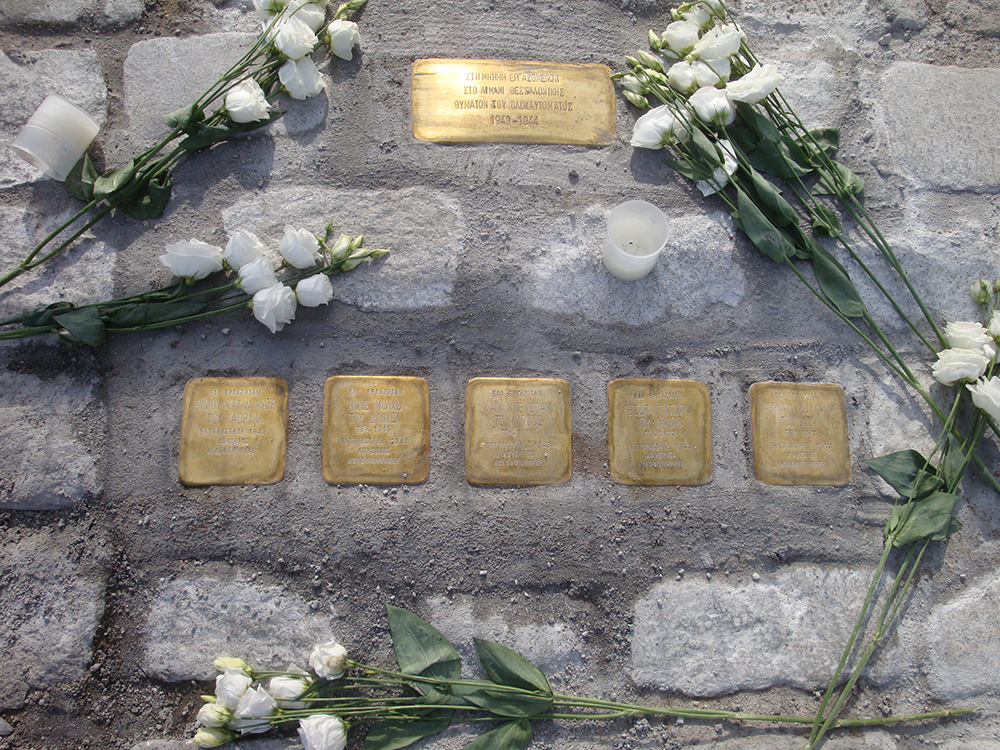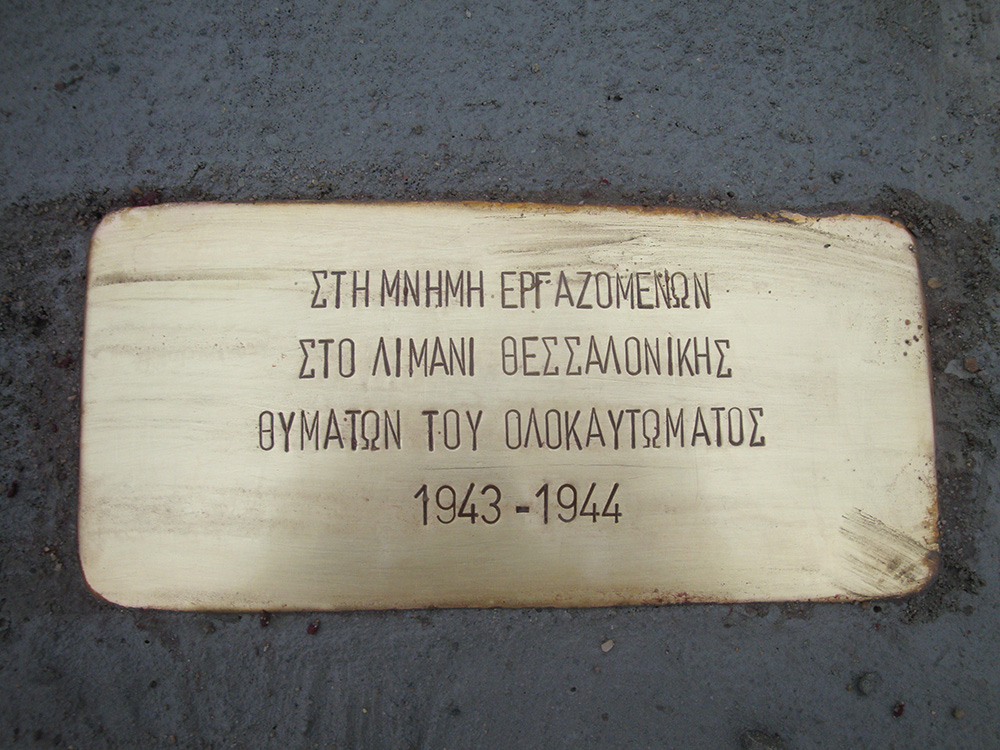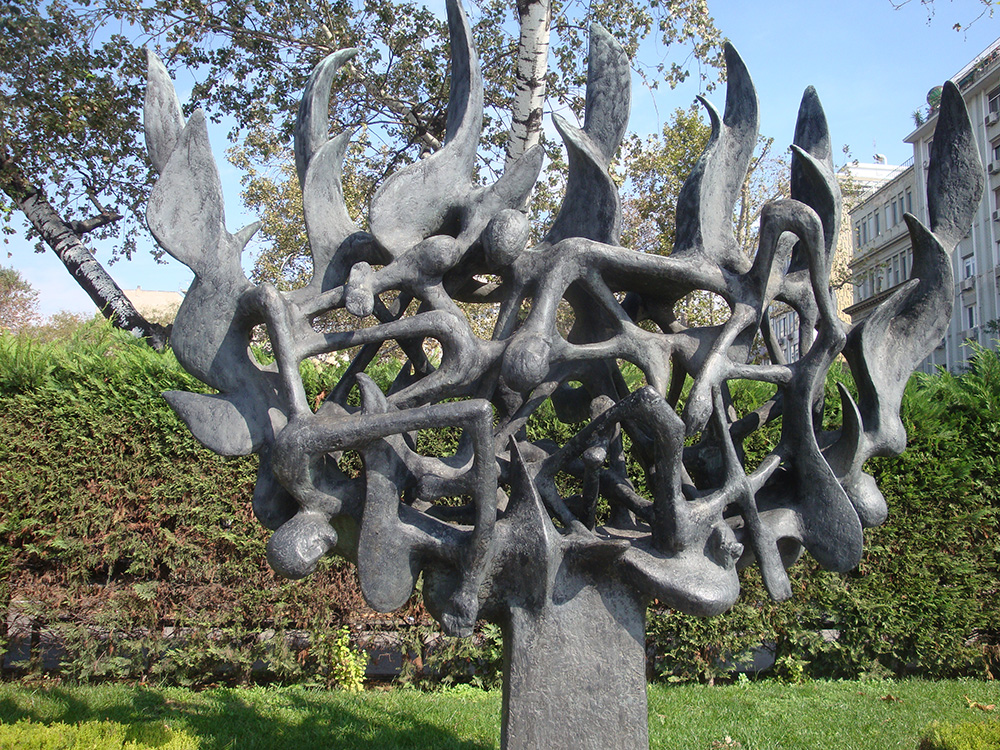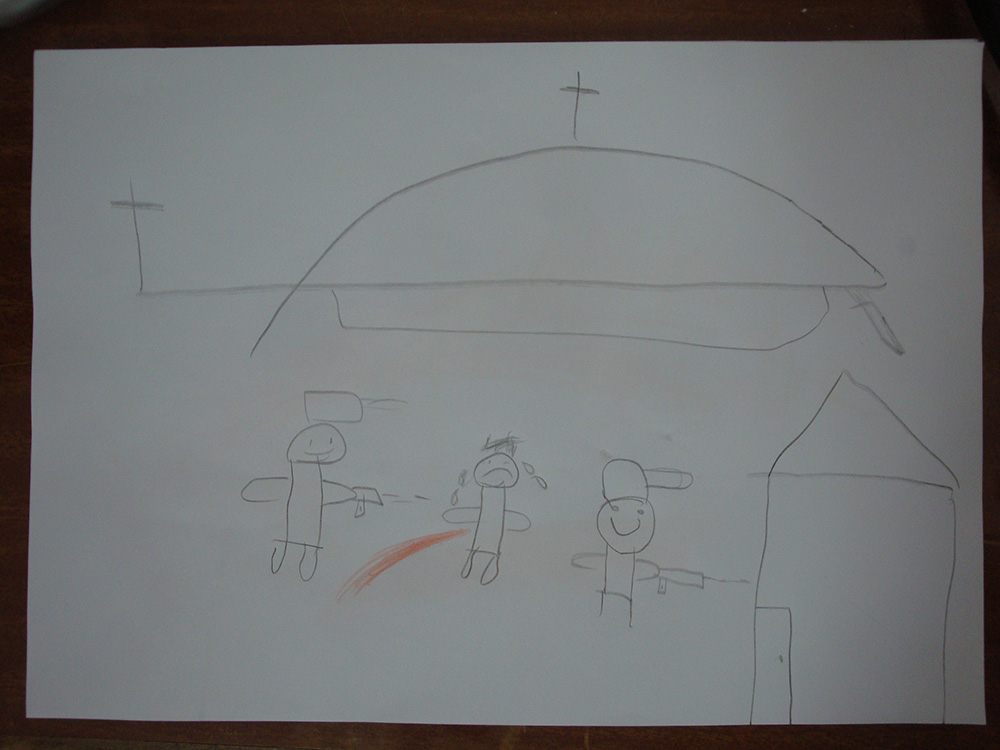In 1492 Spain expelled its Jews but, recognising their language skills, awareness of the Renaissance as well as knowledge of medicine, printing, cartography and weaponry, the Ottomans encouraged them to settle in Thessaloniki. Jewish enterprise enriched the city and by 1864, 70,000 Jews called Thessaloniki home. They made up half the population of the city. Other citizens were Christians and Muslims and postcards of Thessaloniki from the beginning of the 20
th century show a city dotted with minarets.
Around 1922 though there was a huge forced exchange of people – Christians living in Asia Minor moved into Greece and Muslims left for Turkey. There were plenty of atrocities that are remembered by successive generations. Now the Muslim community has largely disappeared and not one functioning mosque remains today.
I guess – despite the oft-repeated spin about the cosmopolitan, open atmosphere of the city – that the Sephardic Jews were not especially well integrated into the community. They lived in one circumscribed area of the city and continued to speak Ladino, indeed one source mentioned the difficulties some people had in hiding their Jewishness during Nazi occupation because they couldn’t speak Greek.
Although the Nazis were responsible for implementing Hitler’s Final Solution and although there were undoubtedly many instances of Greeks sheltering and trying to protect Jews, some Greeks weren’t sorry to see them leave. Perhaps they couldn’t imagine that about 49,000 – one third of the population of the city – would perish in the death camps. The Nazis worked hard to mislead their victims. Counterfeit money was even printed that they were told they’d be able to spend in their new home in Poland.
A happy serendipitous meeting drew my attention to memorial stones,
stolpersteine, placed recently amongst the cobblestones of the Port of Thessaloniki commemorating five men who had worked there. A German artist, Gunter Demnig, has been making these memorial stones for those who were persecuted by the Nazis. There are many in Berlin and some have already been placed at the site of a school in Thessaloniki where lessons were interrupted so that 149 children could be taken to the ghetto and thence to Poland. Only two survived.


Seeing these memorial stones and a trip to the Jewish Museum in Thessaloniki got me thinking about the choices we make and the good and bad that life flings at us. I found myself wondering whether any of my children’s distant cousins – descended from Jews who fled from the Iberian Peninsula but eventually arrived in London – might be represented on the sobering memorial wall that lists all the people taken from Thessaloniki to Auschwitz and Bergen-Belsun.
Just over 1000 of the 49,000 survived that war, so the turmoil of the first half of the 20
th century ethnically cleansed the city of both Jews and Muslims. Two novels, Louis de Bernières' towering
Birds without Wings and Victoria Hislop's
The Thread, are set in those dark days.
 |
| Holocaust monument near the port in Thessaloniki |
Now Middle Eastern conflicts have sent a new wave of migrants into Greece: refugees seeking a safe place live in amongst a people who haven’t the resources to cope with their own crisis let alone play host to others. It is career suicide for Greek politicians to engage with the crisis never mind that international aid has brought money and employment opportunities into the country. Tremendous prejudice remains, here as well as elsewhere in Europe. Recently members of the small Muslim community in the city applied to create a cemetery but the application was blocked by the Greek orthodox church. Greeks want to keep their city 'pure' it would seem.
I wonder how many of those of us who call Europe our home are descended – at least in part – from national and international migrants? Surely hostility and violence begets hostility and violence. Perhaps it is time for all of us to try to open our hearts to those who have lost everything because of conflict. We need to build bridges of compassion.
 |
Kurdish refugee's drawing of a helicopter
and smiling troops loyal to Asad shooting a weeping victim |